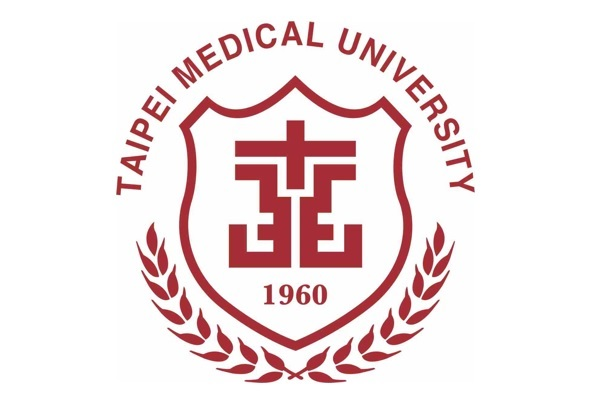Laboratory for molecular cancer theranostics
Research Field
Experience
- 2024- Visiting scholar, Stanford University, USA
- 2021- Director, International Ph.D. Program for Translational Science, College of Medical Science and Technology, Taipei Medical University
- 2021- Director, The Ph.D. Program for Translational Medicine, College of Medical Science and Technology, Taipei Medical University
- 2019- Associate Professor, Graduate Institute of Biomedical Informatics, Taipei Medical University
- 2012-2018 Associate professor, the Ph.D. Program for translational medicine, Taipei Medical University, Taipei, Taiwan
- 2012-2018 Assistant professor, the Ph.D. Program for translational medicine, Taipei Medical University, Taipei, Taiwan
- 2011 Postdoctoral Fellow, Institute of Oral Medicine, National Cheng Kung University, Tainan, Taiwan
- 2008-2009 Research scholar, Department of Pathology, University of Rochester, Rochester, NY, U.S.A.
- 2007-2008 Graduate Student Study Abroad Program of NSC in the University of Rochester, U.S.A.
- 2002-2004Teaching assistant, Department of Biochemistry and Molecular Biology, National ChengKung University, Tainan, Taiwan
There are four projects in our lab:
1. Antibody-Drug Conjugates (ADCs): Precision Weapons against Cancer
Antibody-drug conjugates (ADCs) represent a revolutionary approach in targeted cancer therapy. These innovative molecules combine the specificity of monoclonal antibodies with the potency of chemotherapeutic drugs, enabling selective and effective destruction of cancer cells while minimizing damage to healthy tissues. Through precise targeting of CEACAM6 (a tumor antigen), ADCs offer a promising strategy to enhance the efficacy and reduce the side effects of traditional chemotherapy, opening new avenues in the fight against cancer. In addition, the single-chain antibody-drug conjugate will be a next-generation ADC that is currently developed in our lab.
2. Galectin Roles in Inflammatory and Fibrotic Diseases: Deciphering Disease Mechanisms
Galectins, a family of carbohydrate-binding proteins, have garnered attention for their diverse roles in inflammatory and fibrotic diseases. From modulating immune responses to influencing tissue remodeling, galectins play a multifaceted role in various pathological conditions. We are using glycobiology methodologies to unravel the intricate network of galectin/glycoprotein interactions to gain insights into disease mechanisms and identify potential therapeutic interventions that could alleviate the burden of inflammatory and fibrotic disorders.
3. Risk Assessment of Oral Premalignant Lesions: Paving the Way for Early Intervention
Oral premalignant lesions serve as critical indicators of potential oral cancer development. Rigorous research in this field focuses on developing accurate risk assessment tools to identify high-risk lesions and predict their progression to malignancy. By harnessing the power of molecular markers, imaging technologies, and clinical parameters, we aim to enhance early detection and intervention strategies, ultimately improving patient outcomes and survival rates. In addition, through the omics study, we are also investigating the mecahnisms that induces the transformation of oral premalignant lesions.
4. Cell Therapy for Acute Lung Injury(ALI)-indcued fibrosis
Cell therapy has emerged as a promising avenue for addressing acute lung injury, a life-threatening condition with limited treatment options. Stem cells and other cell types are being explored for their potential to promote tissue repair, reduce inflammation, and enhance lung function. We utilized mesenchymal stem cells (MSC) to treat LPS-induced acute lung injuries and fibrosis. Using Omics and cellular assays, we are investigatign the inmmune modulation ability and anti-fibrotic effect of MSC on ALI.
- Cancer glycobiology
- Antibody-drug conjugate (ADC)
- Galectin roles in inflammatory and fibrotic diseases
- Risk assessment of oral premalignant lesions
- Cell therapy for Acute lung injury
- 2019-2022 Innovative Research Grant (IRG), National Health Research Institutes(NHRI), Taiwan
- 2021-2014 Program Projects Grants (PPG), Ministry of Science and Technology, Taiwan (MOST), Taiwan
- 2018-2021 Program Projects Grants (PPG), Ministry of Science and Technology, Taiwan (MOST), Taiwan
- 2015-2017 Career Development Grant (CDG), National Health Research Institutes(NHRI), Taiwan
- 2016-2019 Travel Grant Award, Annual Meeting of the Japanese Cancer Association, Japan
- 2010.12 Excellent Poster Award, Taiwan Genomics and Genetics Society, Taiwan
- 2010.12 20th Wang Ming-Ning Award, Wang Ming-Ning Memorial Foundation, Taiwan
- 2010.7 Outstanding Research Award, Liver Disease Prevention & Treatment Research Foundation, Taiwan
- 2010.5 Outstanding Research Award, College of Medicine, National Cheng Kung University, Taiwan
- 2007-2008 Taiwan Merit Scholarship, National Science Council, Taiwan
- Ph.D. / 2010/Basic Medical Sciences, National Cheng Kung University, Taiwan
- Master/2004/ Biochemistry and Molecular Biology, National Cheng Kung University, Taiwan
- Bachelor/2002/ Department of Medical Laboratory Science and Biotechnology, Kaohsiung Medical University,Taiwan
2 Vacancies
Job Description
In this position, you will engage in preclinical investigations aimed at optimizing ADC-based therapies for cancer treatment. This involves designing and conducting in vitro and in vivo experiments, analyzing pharmacological efficacy, and evaluating off-target toxicities. By leveraging ADC technology, our goal is to enhance tumor specificity while minimizing systemic side effects, thus advancing next-generation cancer therapies.
Preferred Intern Education Level
BSc / MSc / PhD in Life Science
Skill sets or Qualities
Ideal candidates are advanced undergraduate or graduate students in life sciences, molecular biology, or related fields. A strong background in immunology, oncology, or pharmacology is preferred. This internship provides a rich environment to develop skills in experimental design, data analysis, and interdisciplinary collaboration.
2 Vacancies
Job Description
The internship will explore the immunoregulatory role of galectin-1, a critical player in the tumor microenvironment. You will investigate its potential as a therapeutic target to modulate immune suppression and improve the efficacy of immune-based treatments. This includes mechanistic studies on galectin-1 interactions with inflammatory signals and the development of inhibitors to counteract its immunosuppressive effects.
Preferred Intern Education Level
BSc / MSc / PhD in Life Science
Skill sets or Qualities
Ideal candidates are advanced undergraduate or graduate students in life sciences, molecular biology, or related fields. A strong background in immunology, oncology, or pharmacology is preferred. This internship provides a rich environment to develop skills in experimental design, data analysis, and interdisciplinary collaboration.
